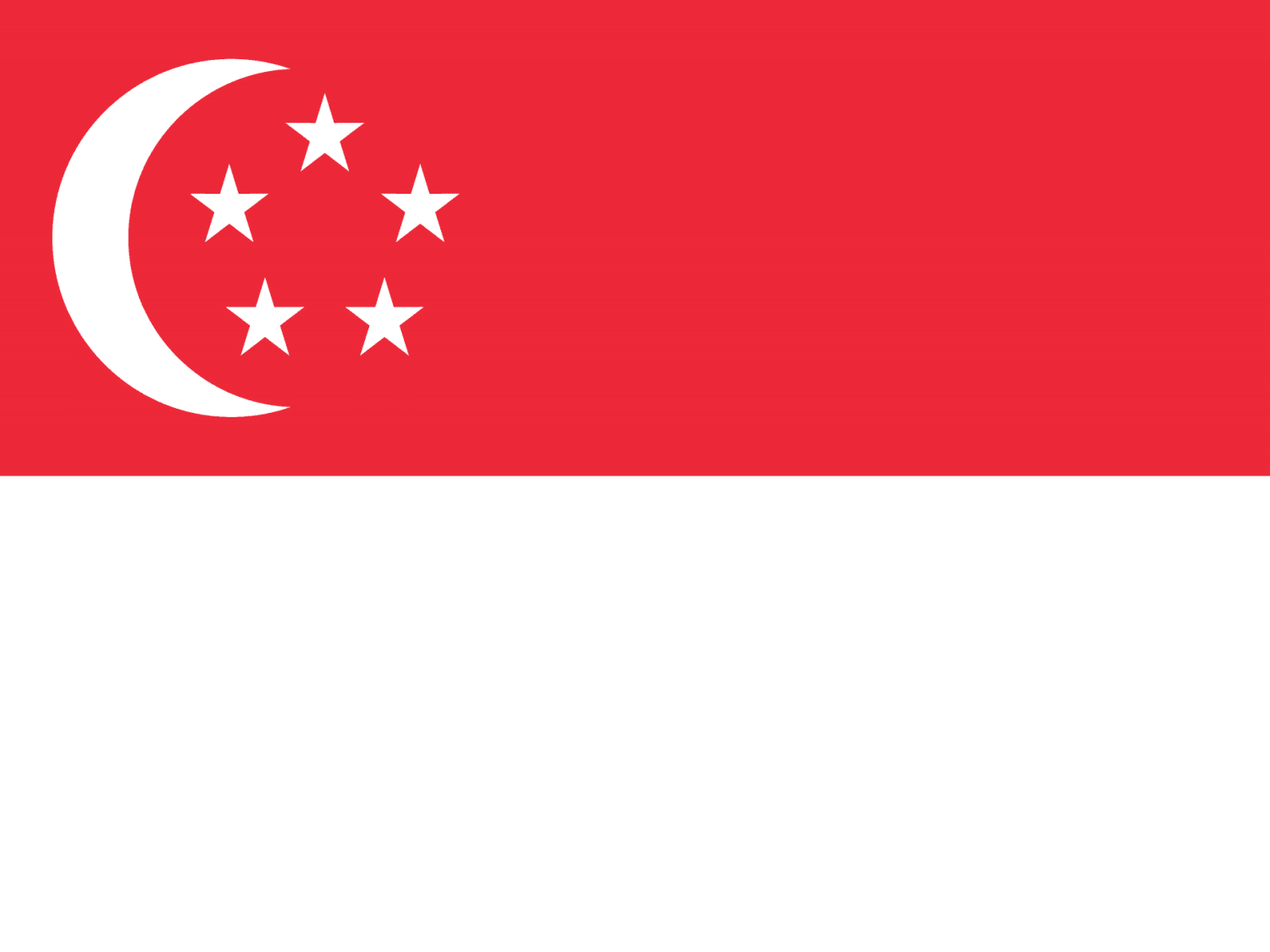Moving to Singapore
Simply move better with reloqio
✔️ Get offers free of charge – No obligation, no worres.
✔️ Quality-tested partners – Reliable and experienced.
✔️ Selection in your region – Find the perfect offer and save up to 45%.

Overview
Introduction to Singapore
Singapore, a vibrant city-state in Southeast Asia, is known for its impressive skyline, diverse culture, and status as a global financial hub. Despite its small size, Singapore offers a high standard of living, excellent infrastructure, and a well-developed public transport system. The city is a melting pot of cultures, with Chinese, Malay, Indian, and Western influences all contributing to its unique character. Singapore is also renowned for its cleanliness, safety, and efficient governance. However, while Singapore offers many benefits, expatriates should be prepared for the high cost of living and the competitive nature of the job market.
Why Move to Singapore
Moving to Singapore provides the opportunity to live in one of the most dynamic and prosperous cities in the world. Singapore’s robust economy, particularly in finance, technology, and trade, offers numerous job opportunities for skilled professionals. The city’s excellent healthcare, education, and public services, combined with a cosmopolitan lifestyle, make it an attractive destination for expatriates. Singapore’s strategic location also makes it an ideal base for exploring the rest of Asia. However, the high cost of living, especially in terms of housing and schooling, can be a challenge for expatriates, and competition for jobs can be fierce.
Cost of Living in Singapore
The cost of living in Singapore is high, particularly in terms of housing. Rent for apartments in central areas can be expensive, although more affordable options are available in suburban areas. Food costs can vary widely, with inexpensive options available at hawker centers, while dining out at restaurants can be costly. Transportation is efficient and reasonably priced, but owning a car is expensive due to high taxes and fees. School fees, particularly for international schools, can also be substantial. While Singapore offers a high standard of living, expatriates need to budget carefully to maintain their desired lifestyle.
Visa and Residency
Types of Visas
Singapore offers several types of visas, including work passes, dependent passes, and long-term visit passes. The Employment Pass is the most common visa for expatriates and is aimed at professionals, managers, and executives. The application process involves submitting documents such as proof of employment, educational qualifications, and a valid passport. The S Pass is available for mid-level skilled workers, while the Work Permit is for lower-skilled workers. Dependent passes are available for family members of Employment Pass holders. It’s important to apply for the correct visa type and ensure that all documentation is accurate to avoid delays or complications.
Requirements for Obtaining Residency
Obtaining residency in Singapore typically begins with securing an Employment Pass or another type of work visa. After living and working in Singapore for a certain period, expatriates may be eligible to apply for Permanent Residency (PR). The process for obtaining PR involves submitting documents such as proof of employment, financial stability, and contributions to Singapore society. PR status grants expatriates more stability and benefits, such as access to public housing and the ability to stay in Singapore without a visa. The process can be competitive, and it’s advisable to seek legal advice if considering applying for PR.
Renewing Residency
Renewing residency in Singapore involves extending your work pass or PR status. The renewal process typically requires submitting updated proof of employment, financial stability, and other relevant documents. It’s advisable to start the renewal process well before your current pass or PR status expires to avoid any legal issues. Employers often assist with the renewal process, particularly for Employment Pass holders. Staying informed about any changes in immigration laws and ensuring all paperwork is submitted on time is crucial for maintaining legal residency in Singapore.
Finding Accommodation
Popular Neighborhoods in Singapore
In Singapore, popular neighborhoods for expatriates include Orchard Road, Holland Village, and the East Coast. Orchard Road is the city’s premier shopping district and offers a range of high-end apartments and condominiums. Holland Village is known for its vibrant expat community, with a mix of cafes, restaurants, and shops. The East Coast area offers a more relaxed, suburban lifestyle, with access to parks and beaches, making it popular with families. Housing in these areas can be expensive, but they offer the best amenities and conveniences for expatriates. Public housing, known as HDB flats, is also an option, though less common for expatriates.
Renting vs Buying Property
Renting is the most common option for expatriates in Singapore, as property ownership can be expensive and subject to restrictions for foreigners. Rental properties are widely available, ranging from high-end condominiums to more affordable HDB flats. Leases typically require a security deposit and the first month’s rent in advance. Buying property in Singapore is possible for foreigners, particularly for condominiums, but there are restrictions on purchasing landed property. It’s advisable to work with a reputable real estate agent and legal advisor if considering purchasing property in Singapore, as the market is highly regulated and competitive.
Tips for Finding Accommodation
When searching for accommodation in Singapore, consider factors such as proximity to work, access to public transportation, and availability of amenities like schools, healthcare, and shopping centers. Working with a local real estate agent can be helpful, especially for expatriates unfamiliar with the market. It’s important to inspect properties carefully before signing a lease, as the quality of housing can vary widely. Be prepared to negotiate rental terms, and ensure that all lease agreements are clear and legally sound. Given the high demand for quality housing in popular areas, it’s advisable to start your search early and be prepared to act quickly when you find a suitable property.
Singapore’s location in Southeast Asia offers easy access to neighboring countries, providing ample opportunities for regional travel. For those interested in exploring the region, the cultural richness and historical sites of Malaysia, the bustling cities of Thailand, or the tropical beaches of Indonesia are all within reach.
Settling In
Healthcare System in Singapore
Singapore has a world-class healthcare system, with both public and private options available. Public healthcare is accessible and generally of high quality, with subsidized rates for residents. Many expatriates prefer private healthcare facilities, which offer higher standards of care, shorter waiting times, and English-speaking staff. Private healthcare can be expensive, so it’s important to have comprehensive health insurance that covers these costs. Singapore’s hospitals and clinics are modern and well-equipped, making it a reliable place for both routine and specialized medical care. The country also has a mandatory health insurance system for residents, known as Medisave.
Education System in Singapore
Singapore offers a variety of educational options for expatriate families, including public schools, private schools, and international schools. Public schools follow the Singaporean curriculum and teach primarily in English, with a strong emphasis on academic excellence. Most expatriate families opt for international schools, which offer curricula based on British, American, or International Baccalaureate (IB) systems. These schools are known for their high academic standards, though fees can be high. Early application is recommended, as spaces in international schools can be limited, particularly in popular grades. Singapore also has a range of private schools that offer alternative curricula, such as Montessori or Waldorf.
Cultural Etiquette and Customs
Singapore is a multicultural society with a diverse blend of ethnic groups, including Chinese, Malay, Indian, and expatriate communities. Understanding and respecting local customs is important for expatriates. While Singapore is relatively liberal compared to its neighbors, it is important to dress modestly, particularly in religious or more traditional areas. Social interactions are generally formal, and showing respect in both personal and professional settings is crucial. Singapore has strict laws regarding littering, smoking in public places, and other public behavior, so it’s important to familiarize yourself with these regulations. Additionally, learning some basic phrases in Mandarin, Malay, or Tamil can enhance your experience and help you integrate more smoothly into Singaporean society.
{filterable_table}
Ready for your move to Singapore? Get free quotes now!
Enquire about moving offers here and get quick answers with cost estimates.
It only takes 2 minutes and you can save up to 45% on your move to Singapore!
